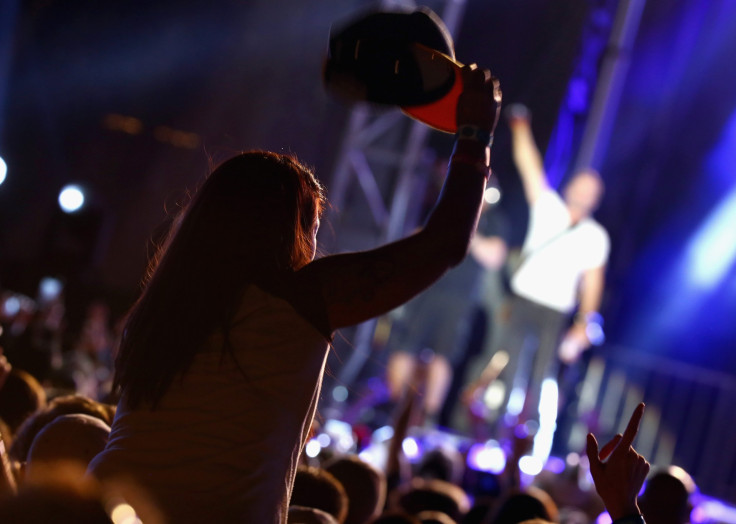Attending A Music Festival? Wear Earplugs To Protect Against Hearing Loss

When music is extremely loud, even short listening times, such as an hour or two at a concert, can lead directly to inner ear damage. While earplugs seem an obvious solution, researchers have rarely studied their actual impact. Can they prevent acoustic trauma? A new study finds they do.
Between 1988 and 2008, the prevalence of adolescents with hearing loss increased by 31 percent in the United States: 16 percent of American teens reported some hearing loss that could have been caused by loud noise, according to a 2010 report from the Centers for Disease Control and Prevention. A slightly smaller proportion of adults (15 percent or 26 million Americans) also have hearing loss.
While some noise is unavoidable, such as from traffic or machinery, we have the option to tune out a good portion of ear-bending noise. We all know the cause: listening to loud music, either on an electronic device or at concerts. In particular, concerts, festivals, and nightclubs expose everyone there to music at noise levels known to cause temporary hearing loss for at least a short time. Because temporary hearing loss can lead to permanent damage, this is no joking matter. Once your hearing is gone, it’s lost forever — it cannot be repaired.
To understand whether earplugs might effectively prevent this from happening, Dr. Wilko Grolman, University Medical Center Utrecht, the Netherlands, and his colleagues conducted a simple test. First, they enlisted the help of 51 people with tickets to an outdoor music festival in Amsterdam.
Rock On
The research team randomly assigned 25 of the festival goers, average age of 27, to wear earplugs, while the remaining 26 wore no earplugs. Then, the recruits took off for the festival where they bathed in the sound for about 4.5 hours. Meanwhile, the researchers set up their audio instruments to gauge sound levels at the festival and to measure temporary threshold shift or TTS, a measure of the change in decibel level at which you are able to hear, in the participants after the concert ended.
The researchers calculated sound pressure levels experienced by the participants was 100 dBA when averaged out over the length of the festival. They also discovered 8 percent in the earplug group experienced a TTS compared to 42 percent in the unprotected group. Also, a lower percentage of earplug wearers complained of tinnitus (12 percent vs 40 percent among the unprotected concert goers).
“The general willingness to use earplugs in music venues by attendees is low,” wrote Grolman and his colleagues, who believe lack of knowledge and scarce availability are both partially to blame.
That said, they feel hopeful.
Noting how some participants in a past study had refused to wear earplugs — despite being offered free first-row tickets to a sold-out concert — Grolman and his colleagues discovered the opposite to be true in their own study. In fact, they had to exclude several people who refused to participate once they found themselves in the no earplugs group. Fortunately, attitudes may have begun to shift in favor of doing what it takes to protect against hearing loss.
Source: Ramakers GGJ, Kraaijenga VJC, Cattani G, van Zanten GA, Grolman W. Effectiveness of Earplugs in Preventing Recreational Noise–Induced Hearing LossA Randomized Clinical Trial. JAMA Otolaryngol Head Neck Surg. 2016.
Published by Medicaldaily.com



























